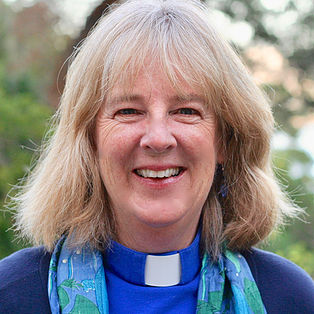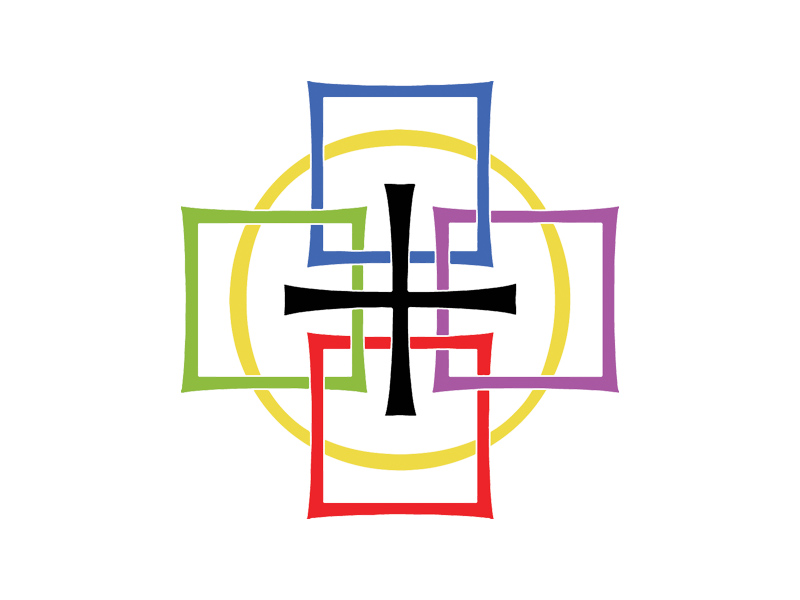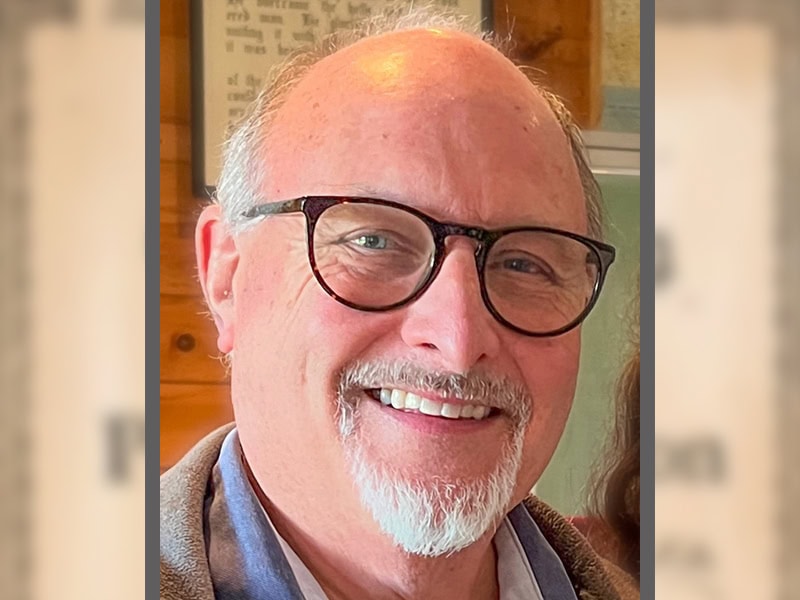Freely Adapted to the Language of the Cosmos
Written by Rachel Rivers
Translator’s Preface
In July of 2021, for the first time since the beginning of the Coronavirus pandemic sixteen months previously, I packed up my car with my camping gear and ventured away from my home on the Point Reyes peninsula, driving northeast three hundred miles to Lassen National Forest, where I set up camp in a remote campground.
And so began a week-long silent retreat, away from human company—including no Internet! I gave myself permission to do whatever I wanted, whenever I wanted. I spent the first few days hiking and swimming, eating and sleeping, lying in my hammock watching the birds and chipmunks, and gazing at the magnificent Douglas firs and Ponderosa and Lodgepole pines. One afternoon, returning to my campsite after hiking into the Caribou Wilderness where I had dipped into Emerald Lake, Hidden Lake and then taken a nice long swim in Silver Lake, I plopped myself down in the shade on my canvas camp chair with a booklet I had brought with me. The booklet contained the first chapter of Swedenborg’s thirteen volume Arcana Coelestia, translated by Lisa Hyatt Cooper for the Swedenborg Foundation’s New Century Edition, now titled in English, Heavenly Secrets.
I first began studying Swedenborg’s writings in earnest in 1978 when I was twenty-two years old, and happily, I am as deeply nourished by what I read now as ever. In 1983, I was ordained as a Swedenborgian minister with the calling to communicate these heavenly truths to people hungry for a life more deeply rooted in love and wisdom and meaningful activity. From the beginning, the challenge was to connect the great love and wisdom I found in what Swedenborg had written 250 years ago to the people of today.
The part of the Swedenborgian Rite of Ordination that has most stayed with me over the decades was the moment in the service when Rev. Calvin Turley placed a Bible in my right hand and Swedenborg’s True Christianity in my left hand and said, “From the Lord’s holy Word, according to this doctrine, lead thou the people by truth to the good of life….” From the beginning of my ministry, I discovered that many people had little or no interest in the Bible, and I always took it as a challenge to find a way to communicate the spiritual truths in the language and daily experience with whomever I was speaking.
As time went on, I found myself with more and more people who fell into the camp of being spiritually hungry, but not interested at all in the Bible. I found this even more so when in 2008, I left serving in a congregational setting and continued my ministry out in the field. Never able to keep quiet about “what Swedenborg says…” regarding whatever topic we would be discussing, it was only a matter of months before my friends and neighbors asked if I would be willing to meet with them, and with their friends, to talk in a more focused way about “what Swedenborg says.” This I gladly did, and fourteen years later I am still at it, meeting in people’s homes in small groups, talking about whatever is most on people’s minds and in their hearts, and sharing what Swedenborg has to offer.
A requirement that was clear to me from the start of these gatherings was that I was not to use theological language, draw from the Bible, or use words like “God” or “Lord.” I understood the restriction, and I obeyed, again taking on the challenge to adapt Swedenborg’s understandings in language that connected in the here and now.
After several years of the group meeting together monthly, one morning in my enthusiasm I slipped up and said something about God. There was an audible collective gasp in the room and then there was absolute silence. Finally, dear Julia, one of the people present most allergic to the word “God” said to those assembled, “Excuse me, but I think what Rachel meant to say was “Love.” We all started laughing, and maybe me the loudest, in the joy of the knowledge that the message of God as Love had clearly been received.
And so, here I was in Lassen National Forest, several days into my solo camping trip, pondering yet again my favorite subject: how to share with others the depths of meaning and guidance available from the writings of Emanuel Swedenborg, this time from Heavenly Secrets, which draws upon the Bible on every page, beginning with the opening words of Genesis.
And the answer came to me: I would translate the opening paragraphs of Heavenly Secrets into the language of the cosmos!
There is a tradition in Christianity that goes back centuries, that there are two books of Sacred Scripture: the “Little Book”—the collection from Genesis to Revelation—and the “Big Book”—the cosmos.
And so, with the magnificent pine trees towering over me, and under a sky that day by day during my camping trip was becoming thicker with smoke from forest fires that would collectively in California that year burn over two-and-half million acres, I re-wrote the first five paragraphs of Emanuel Swedenborg’s Heavenly Secrets, first published in 1749, freely adapting from the language of the Bible to the language of the cosmos.
Heavenly Secrets, paragraphs 1–5
Freely Adapted to the Language of the Cosmos
AC 1 The universe contains secrets of heaven, and every single aspect of the universe has to do with divine love and wisdom, heaven, the union of heaven and earth, right understanding, and all the ways of doing good; but we do not see this in the day-to-day surface appearance of life on earth. On the surface, we basically see that the world is for the most part only about our physical survival.
AC 2 The truth is, however, that every part of the cosmos holds an inner message. Unless we look, we aren’t likely to notice as the inner depths do not show on the surface of things. For the most part, we remain deeply ignorant of the fact that each and every detail down to the smallest dust mote—even down to the tiniest subatomic particle—enfolds and symbolizes spiritual and heavenly matters; and because we lack such knowledge, we also tend to lack interest in and awareness of the sacredness of our physical abode.
Still, we can come to a proper understanding if we reflect on a single notion: the cosmos comes from divine love and wisdom, and so it could not possibly exist unless it held within it the kinds of things that have to do with heaven, the union of heaven and earth, and understanding and doing good. Otherwise, it could not be said to contain any life. Where, after all, does life come from if not from the properties of life? That is, if not from the fact that every single thing in the world relates to divine love and wisdom, which is truly life itself. Whatever does not reflect divine love and wisdom at some deeper level, then, is without life on a deeper level; in fact, if even a single event in the world does not embody or reflect divine love and wisdom in its own way, it is not truly alive.
AC 3 Without this interior life, the universe in its outer appearance is dead. It is like a human being, in that a human has an outward self and an inward self. The outer being, separated from the inner, is just a body and so is dead. It is the inward being that truly lives and allows the outward being to live. The inner being is a person’s soul. In the same way, the universe regarded from the standpoint of a purely outer appearance is a body without a soul. (And thus sadly, we tend to treat it as such.)
AC 4 The world’s superficial appearance alone, when it monopolizes our thinking, can never provide a view of the inner, spiritual contents.
AC 5 However, with the aid of divine love and wisdom, we can see that even the smallest event represents, symbolizes, and incorporates a message of divine love.
Appendix: Emanuel Swedenborg’s Heavenly Secrets, Paragraphs 1–5
Translated from the Latin by Lisa Hyatt Cooper, Swedenborg Foundation New Century Edition, 2010
HS 1 The Word in the Old Testament contains secrets of heaven, and every single aspect of it has to do with the Lord, his heaven, the church, faith, and all the tenets of faith; but not a single person sees this in the letter. In the letter, or literal meaning, people see only that it deals for the most part with the external facts of the Jewish religion.
The truth is, however, that every part of the Old Testament holds an inner message. Except at a very few points, those inner depths never show on the surface. The exceptions are concepts that the Lord revealed and explained to the apostles, such as the fact that the sacrifices symbolize the Lord, and that the land of Canaan and Jerusalem symbolize
heaven (which is why it is called the heavenly Canaan or Jerusalem [Galatians 4:26; Hebrews 11: 16; 12:22; Revelation 21: 2, 10]), as does paradise.
HS 2 The Christian world, though, remains deeply ignorant of the fact that each and every detail down to the smallest—even down to the tiniest jot —enfolds and symbolizes spiritual and heavenly matters; and because it lacks such knowledge, it also lacks much interest in the Old Testament.
Still, Christians can come to a proper understanding if they reflect on a single notion: that since the Word is the Lord’s and comes from him, it could not possibly exist unless it held within it the kinds of things that have to do with heaven, the church, and faith. Otherwise, it could not be called the Lord’s Word, nor could it be said to contain any life. Where, after all, does life come from if not from what is living? That is, if not from the fact that every single thing in the Word relates to the Lord, who is truly life itself? Whatever does not look to him at some deeper level, then, is without life; in fact, if a single expression in the Word does not embody or reflect him in its own way, it is not divine.
HS 3 Without this interior life, the Word in its letter is dead. It resembles a human being, in that a human has an outward self and an inward one, as the Christian world knows. The outer being, separated from the inner, is just a body and so is dead, but the inward being is what lives and allows the outward being to live. The inner being is a person’s soul. In the same way, the letter of the Word by itself is a body without a soul.
HS 4 The Word’s literal meaning alone, when it monopolizes our thinking, can never provide a view of the inner contents. Take for example this first chapter of Genesis. The literal meaning by itself offers no clue that it is speaking of anything but the world’s creation, the Garden of Eden (paradise), and Adam, the first human ever created. Who supposes anything else?
The wisdom hidden in these details (and never before revealed) will be clear enough from what follows. The inner sense of the first chapter of Genesis deals in general with the process that creates us anew—that is to say, with regeneration—and in particular with the very earliest church; and it does so in such a way that not even the smallest syllable fails to
represent, symbolize, and incorporate this meaning.
HS 5 But without the Lord’s aid not a soul can possibly see that this is the case. As a result, it is proper to reveal in these preliminaries that the Lord in his divine mercy has granted me the opportunity for several years now, without break or interruption, to keep company with spirits and angels, to hear them talking, and to speak with them in turn. Consequently I have been able to see and hear the most amazing things in the other life, which have never before come into people’s awareness or thought. In that world I have been taught about the different kinds of spirits, the situation of souls after death, hell (or the regrettable state of the faithless), and heaven (or the blissful state of the faithful). In particular I have learned what is taught in the faith acknowledged by the whole of heaven. All of these topics will, with the Lord’s divine mercy, be explored further in what follows.
Read the full issue of the October / November 2022 Messenger

Meet Rachel Rivers
Rev. Dr. Rachel Rivers presently serves in a field ministry of counseling and teaching on the Point Reyes peninsula, about fifty miles northwest of San Francisco. Her specialty is bringing Swedenborg’s understanding to people who do not identify with a religious affiliation.



